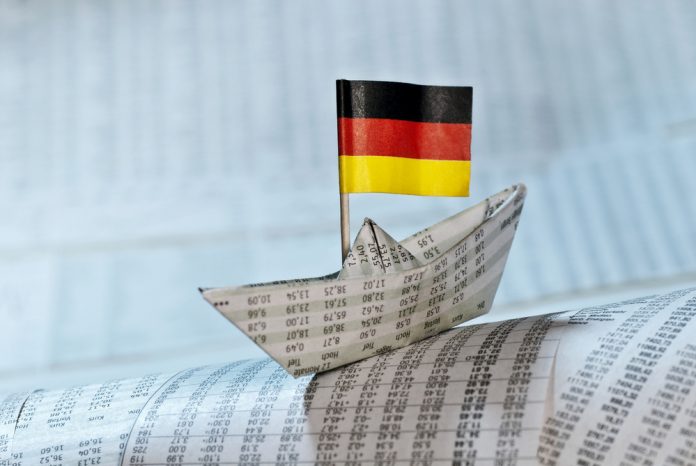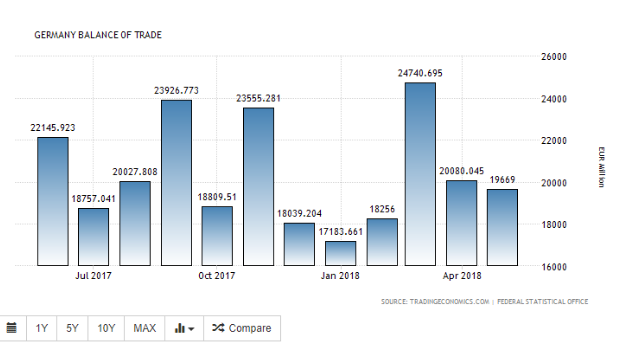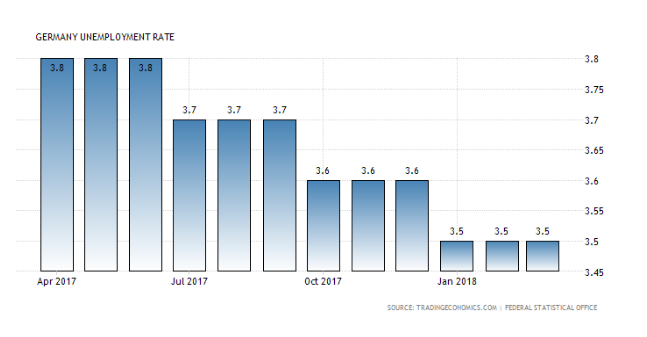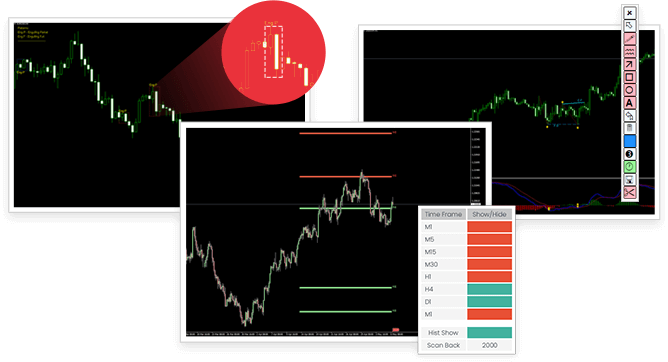
Trade Surplus Defined: Trade Surplus of a nation is an economic situation which reflects its positive balance of trade, where the total value of its exported goods exceeds the total value of the goods imported by it over a given period of time. A trade surplus is usually considered to symbolize economic strength.
Germany and the US: Germany has emerged as the largest trade surplus nation in the world with a Surplus Current Account Balance of 296,000 million USD (2017) and so on this parameter Germany would be considered currently as the best performing exporting nation in the world. On the other hand the United States have become the largest trade deficit nation in the world with a Deficit Current Account Balance of 462,000 million USD (2017). Here this parameter fails as the US cannot be said to be the worst performing economy in the world.
Germany Balance of Trade
Image source: Trading Economics
Germany – A Trade Surplus Nation Since 1952: Germany has been an export-oriented manufacturing economy and it has been a trade-surplus nation since 1952, primarily due to its strong auto exports including cars, trucks, auto parts and other machinery. In 2017, the largest trade surpluses of Germany were recorded with the US, the UK, France, Austria, Spain, and the Sweden. The trade surplus of Germany included its trade surplus with the US of $64 billion.
Germany’s Trade Surplus is a Boon for the country’s economy: Germany’s seasonally adjusted harmonised unemployment rate fell to 3.4 percent in March 2018. It was the lowest unemployment rate since July, 1980 because the number of unemployed Germans has been consistently going down as they have been gaining employment.
Image source: Trading Economics
Germany’s Trade Surplus is Now a Target: The continuing massive trade surplus of Germany has been turning into a PR liability for the country. The country has been facing strong criticism from various corners (especially Trump) as its trade surplus has been assumed an unwillingness to import and so these trade partners are pressuring Germany to boost its domestic spending and thereby increasing its imports.
Deterioration of the US and Germany Relations: US President Donald Trump has already imposed tariffs on EU steel and aluminum imports and is mulling to levy a 20% tariff on all European cars, trucks and auto parts, which is supposed to directly hurt the auto industry of Germany.
As a retaliatory measure, German Chancellor Angela Merkel warned the US administration that hitting auto imports by way of imposition of tariffs would have “dire” consequences. She, however, added that the EU would leave no stone unturned in order to avoid a trade war with the USA. She was quick to add that it is worth to undertake every effort in order to defuse the conflict. She was addressing the German parliament, where she told the parliamentarians that the head of the EU’s Executive Commission, Jean-Claude Juncker, will soon travel to the U.S.
The International Monetary Fund (IMF) has also been pushing Germany to reduce Germany’s high trade surplus through enhancements in its public investments, defence expenditure and other appropriate measures in the interest of the overall growth of the world economy.
Gabriel Felbermayr, the director of the IFO Centre for International Economics Munich also expressed his views on 4th July, 2018 that its trade surplus has been turning out to be a major issue, not only with the U.S. but also with its other trade partners and also with the member nations within the EU. So, immediate steps are required to amicably solve this burning problem.























